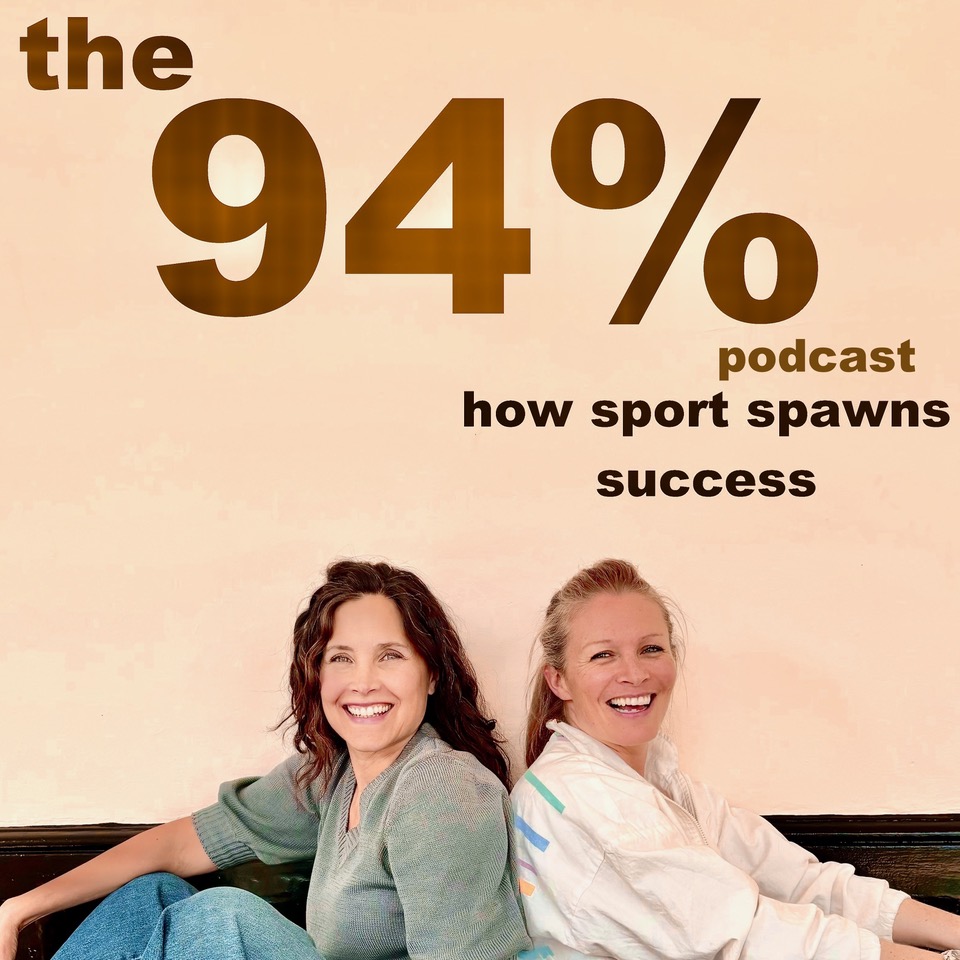94%: The Link Between Women in Sport… and Business Success
August 13, 2025
While the increase in spectators, sponsorship and success in women’s sport is more self-evident, what is not so obvious is the positive effect playing sport has on women in business. David Granger spoke to the hosts of a new podcast examining that link between women’s sport and business…
The Euros football final in July was another sign women’s sport is gaining momentum, building a sustainable model.
The commercial value of women’s sport is growing while participation and sponsorship is similarly on the up. But, while the business of women’s sport is growing, the impact of sportswomen in business also has an impact – all the way to the boardroom.
Research from EY shows 94% of women in C-suite roles played sport growing up. Ninety-four percent.
That stat inspired former international hockey and cricket player Nikki Symmons and actor and producer Rachel Shelley to launch the 94% podcast — an exploration of how early participation in sport builds resilience, leadership and skills which translate off the field of play.
The pair met when Shelley interviewed Symmons for Diva Magazine and later invited her to a Pride event in Switzerland… and their conversation turned into this joint project.
One statistic kept coming back to them: that 94%.
For Symmons, the figure resonated — she completed the EY Women Athletes Business Network (WABN) program as part of her own post-athlete career path. They – rightly – believed the number would spark a wider conversation.
“We knew this wasn’t just a corporate story,” says Symmons. “It applies in entertainment, media, politics — any field where women succeed.”
The podcast launched with a clear audience: women of all ages, but also parents, to highlight the importance of encouraging girls to play sport. The first episode featured actor Jennifer Beals.
The guest list now includes women from sport, business, and entertainment — all exploring how skills like resilience, determination, and teamwork shaped their journeys. Dream guests? Well, if Michelle Obama, Emma Watson, Pink, and Ilona Maher are reading this, women who have credited sport with helping shape who they are, then the pair would like them to get in touch.
The link between sport and leadership is pretty clear: discipline, communication, and teamwork are valued in professional settings. Federations, leagues, and clubs are increasingly reframing women’s sport from “cost centre” to “growth opportunity,” driven by rising audiences and the push for diversity and inclusion.
But momentum is not guaranteed.
The Euro final demonstrated the appetite for women’s sport, but sustaining that success will take more than packed stadiums. Participation among girls is falling in some sports, including basketball in the U.S. and high school programs have been cancelled due to low numbers while – sadly – dropout is high due to inadequate facilities and the odd bout of stigma.
Leagues are fragile without consistent investment and visibility, while women remain under-represented in leadership roles within teams and federations.
Shelley and Symmons say policy shifts like gender budgeting ensuring funding is allocated equitably between men’s and women’s sport from grassroots to elite levels will help. And Mentorship programs which connect young female athletes with leaders in sport (and business) can sustain the pipeline into leadership roles.
These changes would also address one of the most overlooked commercial opportunities: long-term sponsorship activation. Quick wins come from targeted campaigns and influencer activation, but the real return will come from sustained, strategic investment.
Some athletes have taken a more proactive route, turning competitive financial pressure into opportunity. Serena Williams is a prime example. While tennis offers equal prize money at the major tournaments, Williams extended her financial foresight off-court. She founded Serena Ventures in 2014, investing in 85+ startups and launching her own ventures like Wyn Beauty and a children’s book.
Beyond investing, Williams has put wealth back into women’s sport. She partly owns Angel City FC (NWSL), the Miami Dolphins and WNBA’s Toronto Tempo, the league’s first Canadian franchise.
the 94% add another voice to the conversation. By telling the stories of women whose lives have been shaped by sport, the show joins up pitch, workplace and boardroom. Shelley said: “We want people to see the value of sport in all its forms. It’s not just about elite athletes – it’s about creating opportunities, confidence, and skills that last a lifetime.”
The Euro final was a celebration of women’s sport. The challenge is making sure this does not fade. Sustained investment, equitable policies, and cultural commitment will ensure sport keeps producing leaders. Both on and off the field.
Sources: https://www.ey.com/en_nz/athlete-programs/why-a-female-athlete-should-be-your-next-leader


